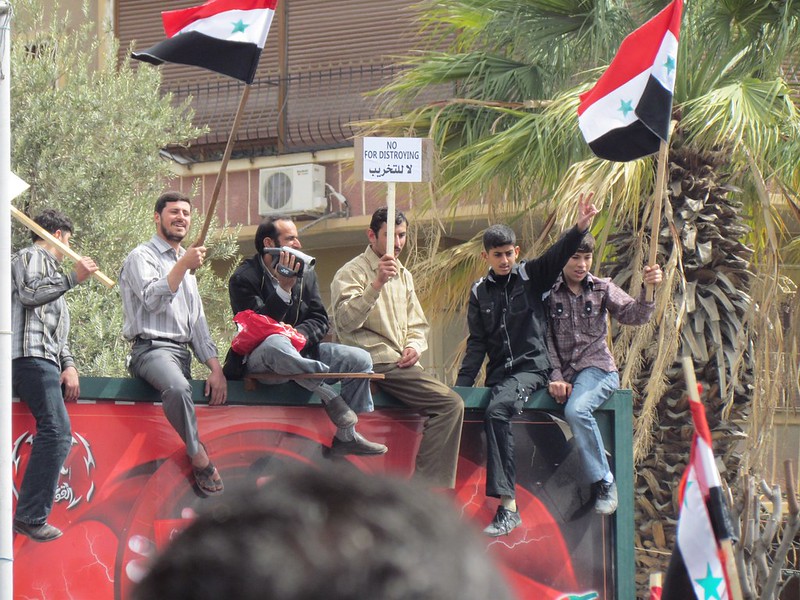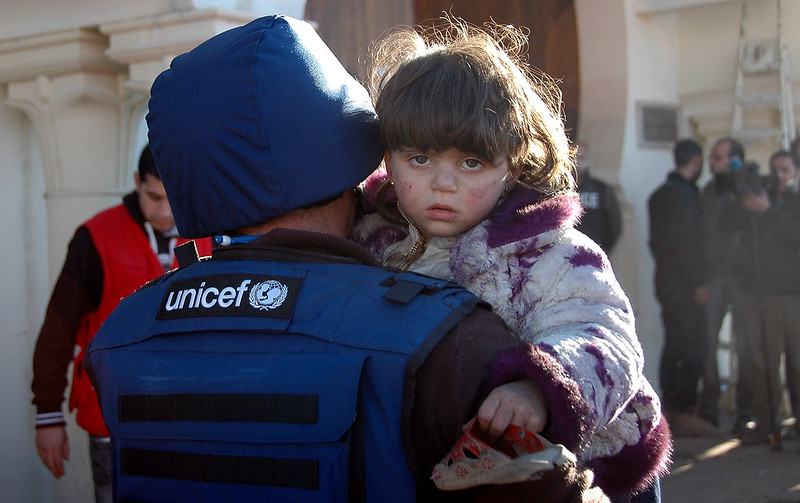In the last ten years, Syria has suffered through a brutal civil war. This war has failed to uproot President Bashar al-Assad from power and instead left the country fractured and deeply wounded. This article will explore the challenges facing Syria when attempting to rebuild the country amidst an unresolved war.
Syrian discontent surrounding their political governance erupted in 2011 when uprisings swept across North Africa and the Middle East. Whilst some states, such as Libya, successfully deposed their leaders in this Arab Spring, Syria did not see a change of governance from the al-Assad family. Instead, civil war erupted. Over the last ten years this war has morphed into a wider and more complex battle as external actors failed to alter the governance at ground level, instead leading to a wider collapse of the Syrian state.


In the last ten years, the civil war has killed approximately 500,000 Syrians, displaced nearly half of the 23 million population with 5.5 million having since fled to neighbouring countries. The European Council estimates that 11.7 million Syrians are in urgent need of aid and approximately 3 million people now live with disabilities. Today, Syria remains in a state of disarray with a collapsed economy, challenged even further by the COVID-19 pandemic.
The UN’s ESCWA agency has estimated that physical capital destruction in Syria stands at $117.7 billion and loss of GDP stands at $324.5 billion. Infrastructure remains deeply damaged across many regions and cities, with basic societal needs unable to be met due to war damage. Approximately 70% of electricity infrastructure has been destroyed, three-quarters of healthcare workers have fled and only 58% of hospitals are currently functional.
Additionally, 1 in 3 schools are too damaged to be used or are controlled by armed groups. This has resulted in a society that struggles to carry out basic daily needs, with humanitarian assistance desperately needed for the millions of Syrians lacking access to adequate healthcare, food, water and education.
Under Assad, human rights atrocities have occurred frequently. There have been widespread reports of torture and police state tactics against rebel groups and civilians in order to quell discontent in war. Approximately 128,000 people have never returned from prisons and the regime is widely known to have used chemical weapons on its own people. Therefore, due to the current political governance of Syria, with the Assad regime still gripping onto power in over 60% of the country, many countries have been unwilling to extend economic assistance for the costly reconstruction.


Therefore, until Syria sees real political change away from Bashar al-Assad, the EU and United States have spoken out against supporting reconstruction relief costs. The bloc renewed their sanctions – which began in 2011 – against Syria in 2019 and 2020 and remains steadfast in their position of abstaining from reconstruction contributions. The EU has placed 270 Syrians and 70 entities under an asset freeze and travel ban. Since 2011, the EU has donated over 17 billion euros in humanitarian assistance and these funds have been utilised for targeted emergency cases, such as aiding Aleppo.
The United States also remains committed to standing against the authoritarian regime but to Daphne McCurdy, a fellow at the think tank The Century Foundation, this policy stance is unrealistic as regime change may never come. Previous failed policies of reconstruction in Iraq and Afghanistan have also tarnished American optimism to extend economic aid for rebuilding projects. Therefore, as Daphne McCurdy explains, the United States finds itself in a conundrum, needing ‘to provide meaningful support to ordinary Syrians, without buttressing a corrupt regime that has co-opted assistance for its own benefit and shows no signs of compromise.’
The United States has also placed sanctions on Syrian individuals and sectors, which was renewed and updated in 2019 under the Caesar Act. On March 30th, 2021, the United States announced a further $596 million for new humanitarian aid, adding to the approximately $13 billion already contributed.
Whilst the West is withholding reconstruction aid, Syria’s main allies, Russia and Iran, also are not forthcoming with economic contributions. Instead both nations continue to seek natural resource stakes in Syria for themselves alongside directly supporting funds for the brutal regime.


And so when elections were held on May 26th, 2021, in the regions of Syria under governmental rule, it was clear that the current leader of Syria, Bashar al-Assad, would be re-elected into his authoritarian role for a fourth term. Viewed by many countries as an absurd pretence at democracy, his successful re-election showcases the need for the world to reassess its stance on aid to Syria as the current status quo is not likely to change anytime soon.
Moreover, held in Douma, this “election” served to send a clear message to the people. The city of Douma was lost to rebels in 2012 and it took years for the government to re-establish control after, as Elizabeth Tsurkov of the Washington Post highlights: ‘years of bombings, a starvation siege and the deployment of chemical weapons in April 2018.’
Unlike the reconstruction of other countries ravaged by war in the twentieth century, such as post-fascist Germany, the continued presence of the antagonist regime hinders developmental progression and only serves to cement injustices and corruption further, lengthening misery for war-ravaged Syrian people.
As the Assad regime looks unlikely to be shaken from power, world powers must evaluate their policies towards Syria. Continued deprivation will only serve to deepen the spectrum of issues within Syria and this has repercussions on stability worldwide. Therefore, it is vital in a post-COVID world, where previous issues will come back to the forefront, that aid to Syria is re-evaluated and discussed at length in order to prevent further societal breakdown.
Emily Lewis




